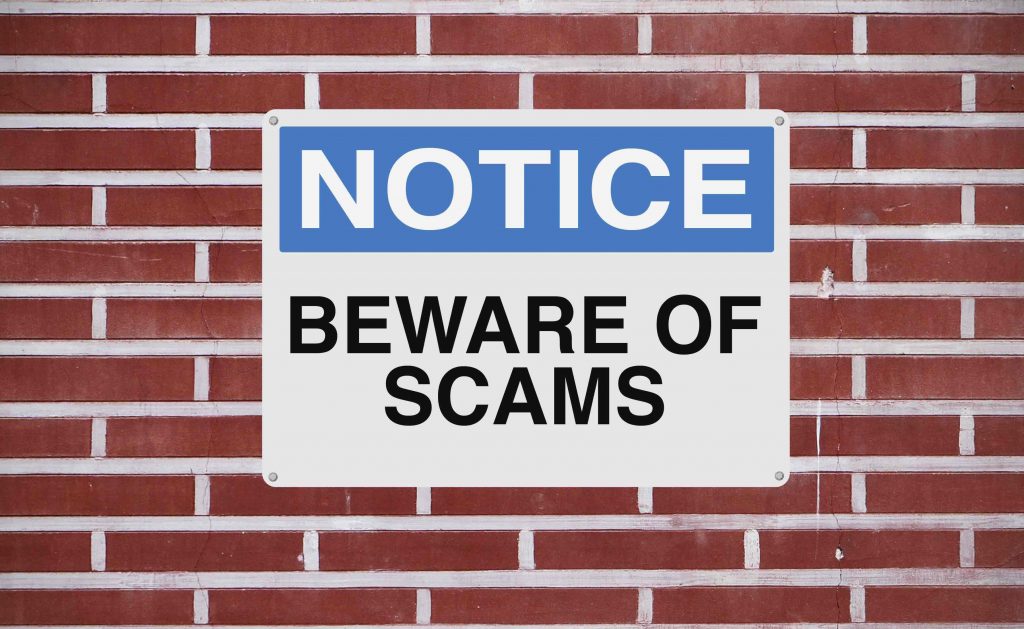Fraudsters and Scammers are always out there attempting new creative ways to steal your account information and your money.
Given there has been recent activity, we are sharing these helpful tips with our members to help protect them against fraud. We are reminding you to:
- Never share your credit union account information or social security number. Your credit union will never contact you by phone, email, or text with a request for this information in its entirety. If you receive a request like this, chances are, it’s a fraud!
- You should always call your credit union using a phone number from their statement to verify that any request is legitimate. If you get pushed back, it is likely a scam. Do NOT call a number or information they provide you, look up your Credit Union’s contact information.
- Don’t overshare on social media. Not only is it common for someone to share their full name and date of birth on social media, but people often share updates on their whereabouts and interactions with family members and close acquaintances.
- Monitor credit card accounts, banking accounts, and credit reports regularly.
- Change account passwords often and avoid using the same username and password on multiple sites. Keep in mind that secure passwords often contain letters, numbers, and special characters.
- Never click on links or open attachments from unknown individuals or companies as it could enable malicious software.
- Contact your credit union right away if you believe their information has been compromised!
Combating Fraud at ‘The County’
• With Free text messaging VISA Debit Card Fraud Alerts
Link to Special Bulletin
How to receive your Free Credit Report
How to Freeze Your Credit for Free
Did someone send you a check and ask you to send money back?
That’s a Scam! Click Here
At The County Federal Credit Union, your personal security is our top priority.
Scammers will continue to come up with creative ways to get into people’s financial accounts. Scamming is an everyday part of our lives now and we can never let our guard down. Be sure to keep these common scams and tips in mind before you put your funds at risk:
- If you receive a call or email from someone who claims to be from your credit union or financial institution and says your account has been defrauded or that you need to make a payment with your credit or debit card, or divulge account numbers or social security numbers, ask them for their contact information, and say you will call them back or simply hang up. Check the number they give you against the number you normally contact your credit union with.
- Your credit union or any financial institution will NEVER call or email you asking you to follow a link or ask you for personal details over the phone. If you believe the call or email is not genuine, contact your credit union or financial institution to let them know about the possible fraud and ask their advice. Do NOT call using any telephone number listed in an email— use a number that appears on your statement or card, or in the phone book. The more you know, the better you’ll be able to guard against identity theft, internet fraud and more. Fortunately, there are many preventative measures you can take to substantially reduce the chance of fraud.
To learn more on how you can protect yourself visit one of the links below:
▪ United States Federal Trade Commission’s Website: A very good resource for information on scams, how to avoid them, and how to repair the damage after you’ve been scammed.
▪ Identity Theft: Protect yourself from identity theft and learn what to do if your identity is stolen.
▪ Internet Fraud: Learn how to defend against internet fraud, fraudulent e-mails, viruses and spyware.
▪ Check Scams: Guidelines to avoid check scams and how to protect your accounts.
▪ Phone Scams: Tips to recognize a phone scam.
▪ Loan Fraud: Steps to protect yourself from loan fraud scams and predatory lending practices.
▪ Credit & Debit Card Fraud: Information on how to prevent your card from being compromised.
▪ Financial Exploitation: Examples of financial exploitation and how to avoid becoming a victim.
▪ Online Banking Security: Tips for protecting your financial data when using online banking.
CLICK HERE To Read the latest COVID-19 Scam Threat
Along With Maine Credit Union League – Update on COVID-19 SCAMS
Link to Equifax Data Breach Settlement
In September of 2017, Equifax announced it experienced a data breach, which impacted the personal information of approximately 147 million people. A federal court is considering a proposed class action settlement submitted on July 22, 2019, that, if approved by the Court, would resolve lawsuits brought by consumers after the data breach. Equifax denies any wrongdoing, and no judgment or finding of wrongdoing has been made.
Data Breach at Marriot
If you have stayed at or reserved rooms through The Marriot’s reservation system you may be affected. Starwood brands include W Hotels, St. Regis, Sheraton Hotels & Resorts, Westin Hotels & Resorts, Le Méridien Hotels & Resorts, and other hotel and timeshare properties. To read more on how to protect yourself visit The Federal Trade Commission’s website, click here.



